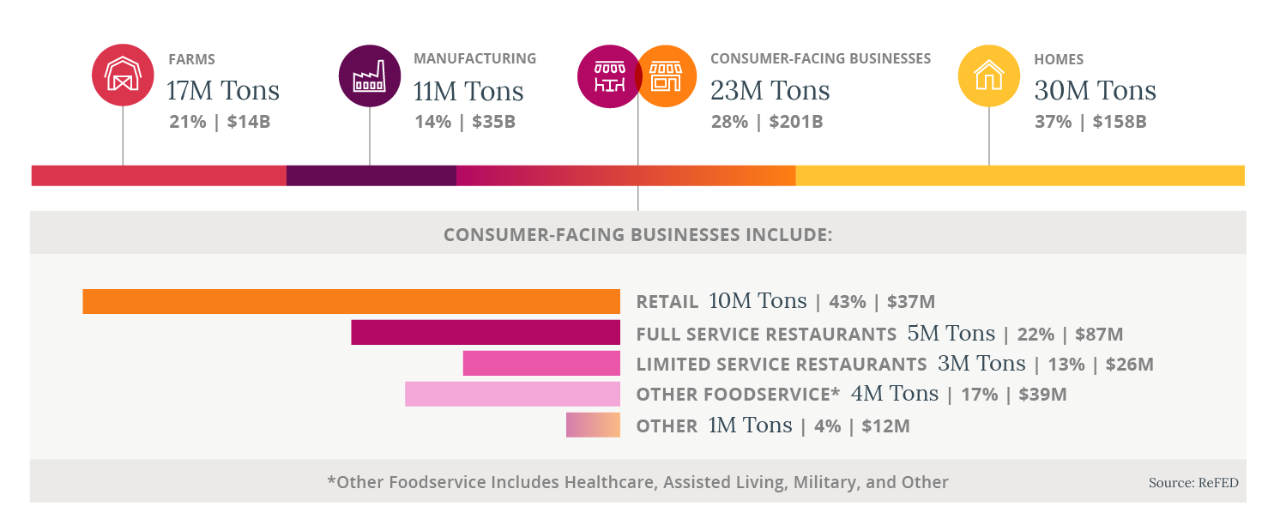Avery Dennison is proud to be listed as a solution provider as part of the ReFED Insights Engine and Roadmap to 2030, we believe technology has the power to positively impact and make 50% food waste reduction a reality.
Based on pilot studies, RFID tagging can help grocers reduce food waste by as much as 20%. And if we were to expand the scope to include food recalls and inventory management, the benefit could be even greater. Some of the Top 5 Solutions for Retailers, as it relates to Net Financial Benefit, include First Expired First Out and Enhanced Demand Planning. As Peter Drucker once said “you can’t manage what you don’t measure”, Digital ID solutions like RFID have the potential to play a big role here, providing the necessary transparency for improved decision making, this could mean producing less based on demand visibility. A World Economic Forum report found that sensors can reduce food waste up to 7%. In an industry that has historically been viewed as a laggard when it comes to sustainability, with some companies recently facing criticism for not living up to sustainability commitments, increasing transparency has been highlighted as one mechanism to improve the food industries record on sustainability.





